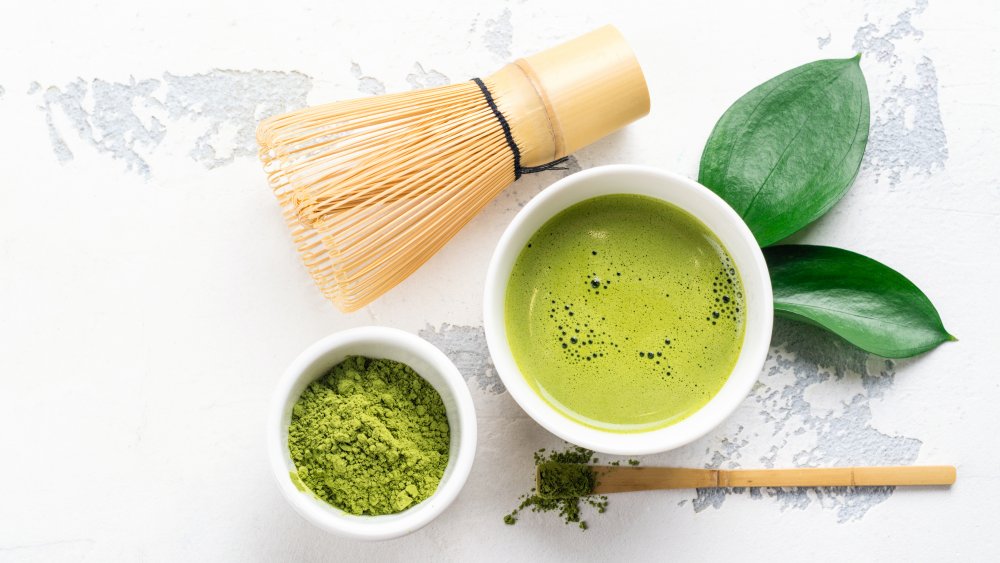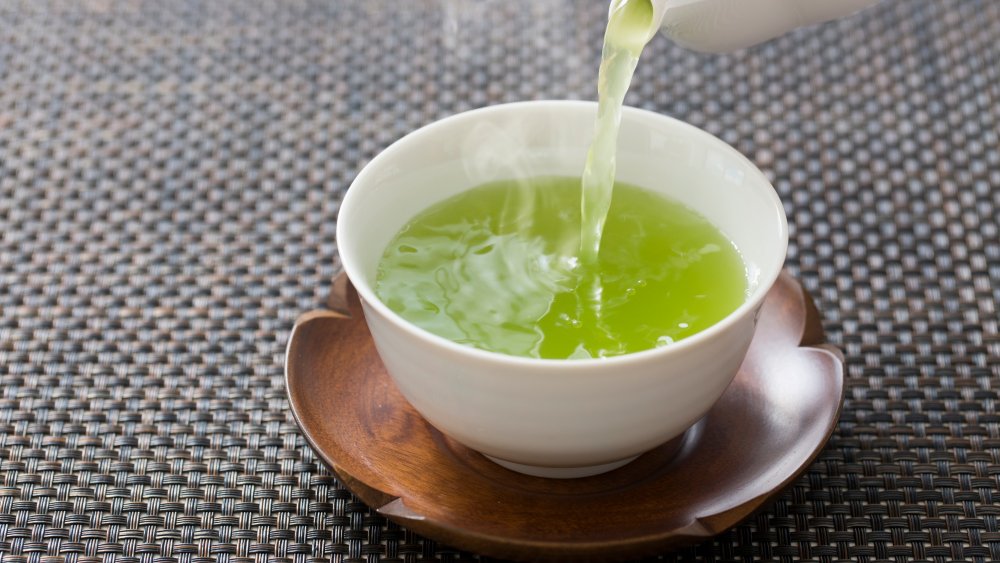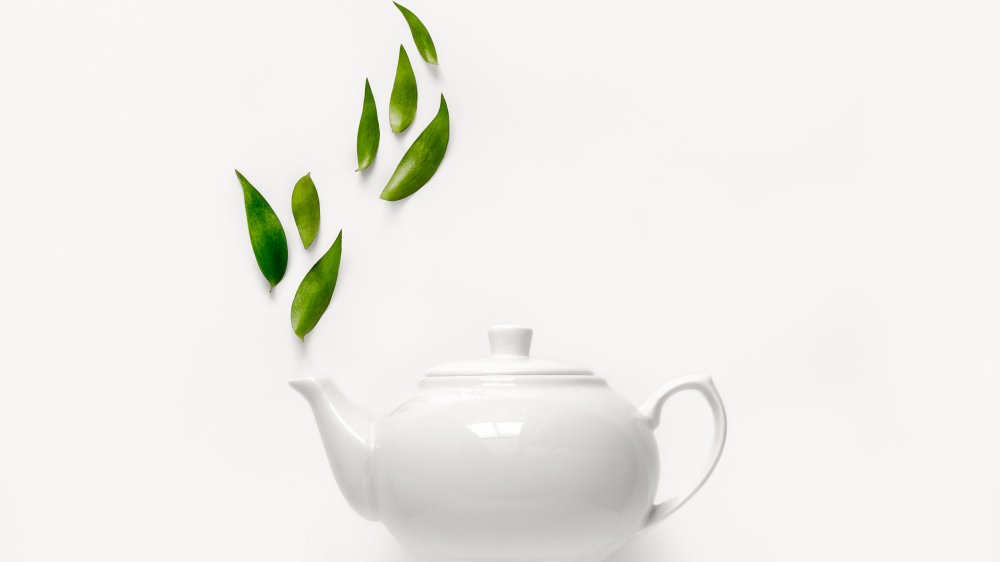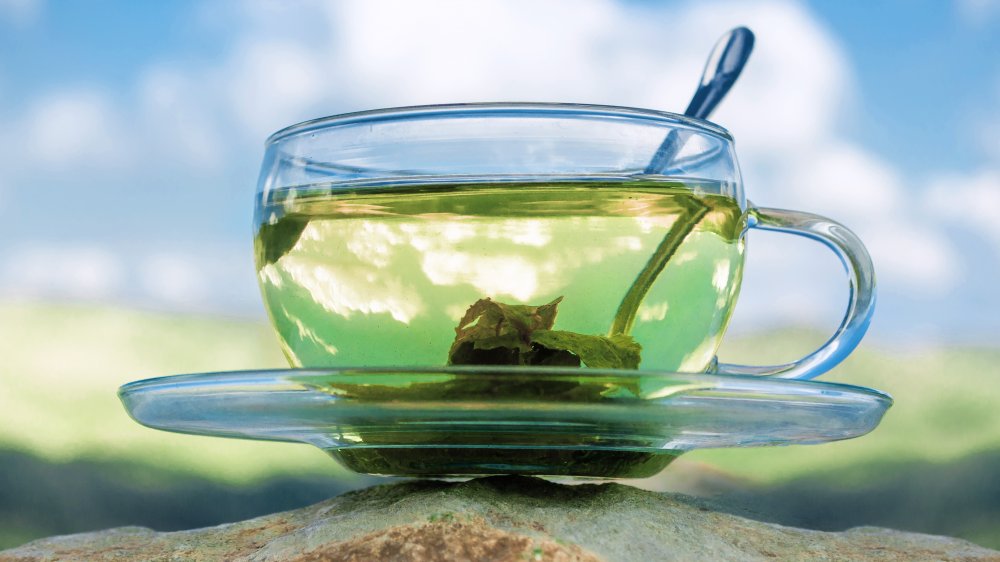Here's What Happens When You Drink Green Tea Every Day
Green tea is often lauded as one of the healthiest drinks available. According to Umami Insider, green tea is widely consumed in countries like Japan, which has one of the longest life expectancies in the world (via World Bank). So, there may certainly be some truth to the claim. One research scientist from Mount Sinai Hospital called the beverage "the healthiest thing [he] could think of to drink" (via Web MD). The majority of the health benefits of the beverage are wrapped up in antioxidants known as catechins, which protect against cell damage.
Green tea and black tea come from the same plant, the camellia sinensis (via Self). Green tea retains its catechin content because it isn't processed much before you drink it. While it sounds like a given that green tea imparts a number of benefits on the body, what are they specifically? Here's what happens if you drink green tea on a daily basis.
You might have fewer stomach bugs
The reason that green tea is traditionally served with sushi is that it serves as an antimicrobial companion to raw fish, which can sometimes harbor tiny nasties (via Mauna Kea Tea). The catechins which cause this antimicrobial response are effective — and you're taking in quite a bit of them when you drink green tea. In fact, between 25 and 35 percent of the dry weight of green tea leaves are catechins (via Nature). While running into dangerous bacteria such as E. coli and needing to neutralize it is hopefully a rare occurrence, green tea is also able to relieve some of the symptoms brought on by the commonly-occurring stomach bacteria Helicobacter pylori (via The Daily Meal).
Your brain will be firing on all cylinders
Green tea contains less caffeine than black tea (via Healthline). But, it still contains a little less than a third of the caffeine content as a cup of java does (via Livestrong). As caffeine is a well-known stimulant, this in and of itself may help you focus on things if you feel like you need a brain boost. However, green tea also contains a substance called L-theanine, which is an amino acid (via Healthline). On its own, L-theanine is known to increase dopamine levels in the brain and have anti-anxiety effects. However, in concert with caffeine, these two substances can work together. Combining caffeine and L-theanine has been shown to have a doubly enhanced positive effect on brain function.
You'll be taking care of your heart
A study found that people who drank between one and three cups of green tea every day had a 19 percent smaller chance of having a heart attack compared to people who did not drink green tea. A study also found that people who drank green tea boasted a 31 percent smaller chance of dying from heart disease (via Healthline).
On top of that, a study found that tea helped to reduce the low-density lipoprotein, or bad cholesterol, in the body. If cholesterol is allowed to build up in the blood stream, it can accumulate in the arteries of the body. If too much accumulates, it makes it harder for blood to flow through the arteries, leading to heart attacks if the blood is not able to pump through the arteries of the heart (via Web MD).



